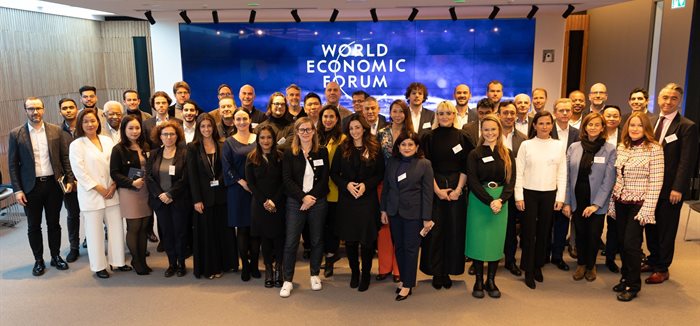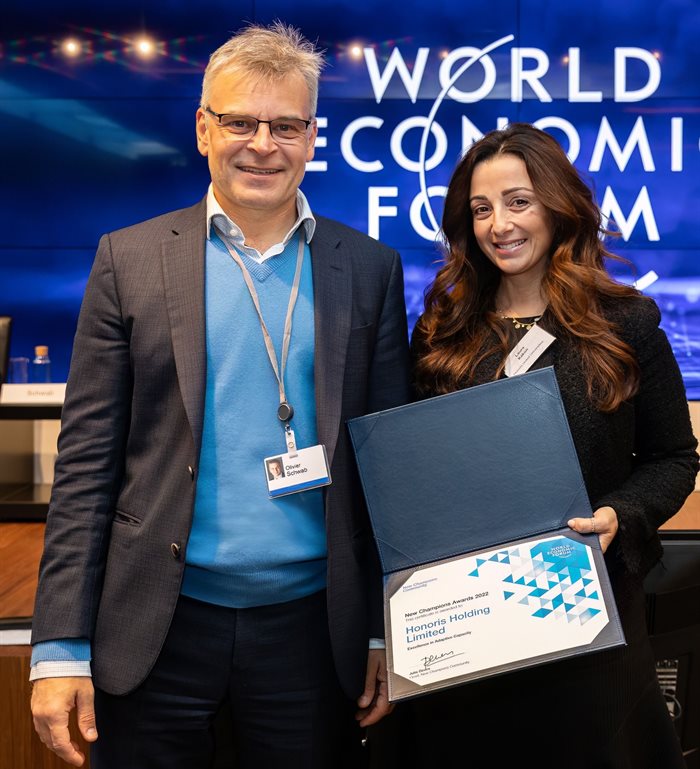
Related
Top stories






More news






ESG & Sustainability
#Sona2026: President announces crisis committee to tackle SA's water challenges







In addition, the pandemic accelerated the Fourth Industrial Revolution (4IR), with new conditions highlighting the value of technology-based communication and learning platforms. Technology also played an increased role in many industries as machines are immune to pandemics.
Tertiary institutions that embrace additional tech-based subjects and include courses designed to help manage the disruption many companies faced during the pandemic are becoming increasingly relevant especially as the public realizes the need to future proof their education and business. Honoris United Universities (Honoris) recently received an award from the World Economic Forum (WEF) for its work around embracing both of these aspects in their educational content.

Importantly, these changes have forced many transitioning learners, especially those moving from secondary to further education at tertiary institutions, to ask key questions about their future.
These questions include an evaluation of what the jobs of the future are likely to be and whether their chosen tertiary institute offers qualifications that would enable their employment in these roles. Essentially, many of these entrants are asking whether tertiary institutions are teaching subjects that embrace these emerging technologies and are evaluating if existing courses, such as degrees in commerce, include new course material that takes into account the widespread operational disruption initiated by the pandemic.
“These questions are particularly important in the South African context given its historical challenges around access to tertiary education and the necessary funding of this sector. Not only are there limited spaces at tertiary institutions, but those who are able to find a place face the added challenge of securing funding. South African learners taking the important step of furthering their education need to be assured that they are making the right decision and that there is value in their chosen course,” says Mohammed Goga, MD of Mancosa.

Mancosa, is part of the pan-African Honoris network, along with the Regent Business School, Red & Yellow Creative School of Business, and FEDISA Fashion School in South Africa.
In November, Honoris received a prestigious award from WEF in Geneva, Switzerland. This award, which forms part of WEF’s New Champions’ Annual Awards, was bestowed on Honoris for its excellence in Adaptive Capacity.
Honoris was welcomed into the WEF New Champions cohort in March 2022, placing it in a group of 118 dynamic high-growth companies championing new business models, emerging technologies, and sustainable growth strategies fit for the 4IR.
Every year, the WEF New Champions’ Awards celebrates excellence among its members with 2022’s cohort highlighting companies creating lasting impact in their industries across three categories:
The WEF defines adaptive capacity as the combination of both agility and resilience. It is the ability of people, organisations, systems, and institutions to respond to extraordinary external change in order to not only maintain their position, but to adjust and thrive in a new normal.
Adaptive capacity for Honoris is not just a reaction to the changing landscape of education post-pandemic, is a part of Honoris’ DNA acting as a central pillar of its strategy since its inception in 2017. This transformative education network takes a student-centric approach to increase access and the quality of higher education in Africa, combining the expertise of its member institutions to prepare students for success in a complex, continuously changing world of work.

“This is an extremely important point within the South African context. Mancosa feels that education does not take place in a vacuum and that in order to equip students to become successful, we need to know the context within which they want to further their studies and what they need to succeed,” says Goga.
As students continue to find new ways to learn amidst the 4IR, educators must transform the delivery and curriculum to meet their needs, particularly in the key employability sectors in Africa.
Honoris has built several centers of excellence in business education, health, and engineering, IT, and recently in digital & creative arts, combining the delivery of online and in-person education with state-of-the-art learning environments.
“There is no doubt that the future of employability will be in areas of technology-based industries or industries that are run by technology. We are seeing this in retail, engineering, mining, logistics, supply chain management, and finance. Students need to be equipped with technology-based skills as they are highly transferable and can be used across industries. This highlights the importance of the WEF award in the South African context as the country moves toward becoming a major role player in the future-proofing of the continent,” says Goga.
Honoris United Universities Group CEO, Dr. Jonathan Louw said that this is an important achievement for Honoris.
“We are humbled to receive the award for Adaptive Capacity from the World Economic Forum New Champions’ community. Last year was an exceptional year for our network. We graduated more than 20 000 students across our institutions, and our student body grew to over 71,000 students. This is thanks to the passion and dedication of our people. The WEF New Champions’ award demonstrates the power and capability of unity in working toward a common goal. For the new year ahead (2023), we recognize that our adaptive capacity as people, and as an organization, will continue to be crucial in our efforts to transform the continent,” says Dr. Louw.